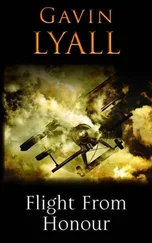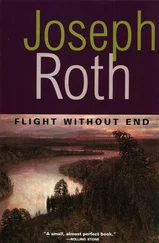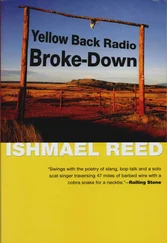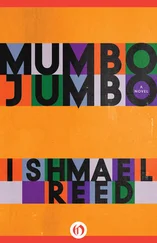“I’m not going to put in with no chumps. What do you know? I was with Grant and Lee in Mexico. Bof of em. Mr. Polk’s war. They was friends then. We chase Santa Yana’s butt all over the mountains. I was there when they captured—”
“In what capacity, a body servant? Fetching eggs for the captain, Arthur Swille the Second, shining his boots and making his coffee? Oh, look, 40s, I’m … I didn’t want to hurt your feelings. Look …” He puts his arm around him.
“Get on way from me.”
“But …”
“I got all these guns. Look at them. Guns everywhere. Enough to blow away any of them Swille men who come look for me. I don’t need no organization. If I was you, Quickskill, I’d forget about this organization.”
“Why?”
“Cause them niggers don’t wont no organization. You have a organization, they be fighting over which one gone head it; they be fightin about who gone have the money; then they be complainin about things, but when it come down to work, they nowhere to be found. Look, Quickskill, they bring in some women, then it’s all over. Then every one of them want to impress the women. They be picking fights with each other and talking louder than each other, then look over at the women, see if they lookin.”
“There really doesn’t seem to be too much interest in it. Maybe you’re right.”
40s closed his eyes and rocked in satisfaction. “Now you’re talkin, Quickskill. You worry about Quickskill. Leechfield will look after himself, you can be sure of that. Come on, have a drink.”
He went to the shelf and pulled a bottle down. It had a mushroom cloud painted on the label. He poured Quickskill a shot glass. He poured himself one. Then he hobbled around the table on his stump. “Here’s to the emancipation of our brothers still in bondage, in Virginia, Massachusetts and New York.”
They drank. Quickskill’s liquor went down. He felt like someone had just shot a hot poker through his navel. Battleships started to move about inside. Gettysburg was inside. His face turned red. He began to choke and his eyes became teary. 40s slapped him on the back.
“How can you drink this stuff?”
“Jersey Lightning. Stuff is good for you. Make your hair grow. Where you think Lincoln got that beard?”
“Yeah, sure,” Quickskill said, wheezing and coughing.
“What’s going on with Leechfield?”
“He’s doing okay. I just left him.”
“He’s comin up in the world. I saw him in the paper. He had an ad in there. Man, what a con he is.”
“Let me see it.”
40s rose and got a newspaper from a pile over near the houseboat’s one door. He brought it to Quickskill, pointing to Leechfield’s ad: “I’ll Be Your Slave for One Day.” Leechfield was standing erect. In small type underneath the picture it said: “Humiliate Me. Scorn Me.”
“This is disgusting.”
“Leechfield gets more pussy than a cat, Quickskill. Always driving a long boat. Money.”
“What does that Leer have to do with Leechfield?”
“Oh, man, that’s his runner.”
“I don’t get it.”
“They pardners. You see, Leer takes photos, and they sell them around the country. It’s a mail-order business they got. You’d be surprised how many people enjoy having a slave for a day even when they can’t touch them. They say that one of them Radical Republican congressmen even sent for one. Leechfield has come a long way. Use to be nothin but a chicken plucker. That Leer brought him into the big time. First they started out in Tennessee. Leer would pretend to be Leechfield’s owner, and he’d have Leechfield dressed up in black cloth pantaloons, black cloth cap, plaided sack coat, cotton check shirt and brogans. And he’d sell Leechfield during the morning and then he’d kidnap Leechfield at night, and then would repeat the same routine to a different buyer the next day. Man, they made a fortune in the nigger-running business. That’s how they got the money to come up here.”
Quickskill rose.
“You leavin?”
“Yeah, I got to go.”
“You upset about Leechfield?”
“Yeah, a little. The slaves really used to look up to him.”
“Well, be careful, Quickskill. Swille ain’t going to spend all of that time chasing us. He’s busy. How’d he find out we were here, anyway?
“It’s my poem. You don’t understand.”
“You got to be kiddin. Words. What good is words?”
“Words built the world and words can destroy the world, 40s.”
“Well, you take the words; give me the rifle. That’s the only word I need. R-i-f-l-e. Click.”
BOOK TITLES TELL THE story. The original subtitle for Uncle Tom’s Cabin was “The Man Who Was a Thing.” In 1910 appeared a book by Mary White Ovington called Half a Man. Over one hundred years after the appearance of the Stowe book, The Man Who Cried I Am, by John A. Williams, was published. Quickskill thought of all of the changes that would happen to make a “Thing” into an “I Am.” Tons of paper. An Atlantic of blood. Repressed energy of anger that would form enough sun to light a solar system. A burnt-out black hole. A cosmic slave hole.
Here he was at a White House reception. All of the furniture in the room is worth more than he is. It seems to be sneering at him. The slave waiters look him up and down and cover their grins with their hands. He isn’t in the same class as the property. Is there a brotherhood of property? Is he related to the horse, the plow, the carriage? He had just passed the reception line. Shook hands with Lincoln.
Lincoln whispered a rhyme to him that was popular among the slaves and that had fallen into the mouths of the Planters. Generals of the Union had captured it as contraband, and now it was being uttered in the highest circles in Washington:
“If de debble do not ketch
Jeff Davis, dat infernal wretch
An roast and frigazee dat rebble
Wat is de use of any Debble?”
Raven exchanged nervous smiles with the President, and after he passed he heard the President whisper to an aide, “How did I do?”
Lincoln was uggggly! An uggggly man. The story was that Mary Todd Lincoln had become furious at his carryings-on with Mrs. Charles Griffin, who had inspected the troops with him, the incident that got tongues to wagging and made Mary furious, but how could she be jealous of Abe, poor ugly Abe? Why was he doing this? Inviting artists, writers, dancers and musicians to the White House?
Quickskill couldn’t forget the telegram: “For your poem ‘Flight to Canada,’ a witty, satiric and delightful contribution to American letters, we invite you to a White House reception honoring the leading scribes of America.”
Walt Whitman was there. He had written a poem called “Respondez,” in which he had recommended all manner of excesses: lunatics running the asylum, jailers running the jail. “Let murderers, bigots, fools, unclean persons offer new propositions!” And now, here he was as Lincoln’s guest in the White House.
In the same poem he had written: “Let nothing remain but the ashes of teachers, artists, moralists, lawyers and learned and polite persons.” I guess he was talking about himself, Quickskill thought, because there he was, as polite as he could be, grinning, shaking the hands of dignitaries.
Whitman had described Lincoln as “dark brown.” Whitman was accurate about that. He stood in the corner for most of the party, sniffing a lilac.
There were a couple of anti-war scribes that Quickskill recognized. They were from New York. There was a large anti-war movement in New York. In fact, New Yorkers were seriously considering a proposal to secede from the Union for the purpose of forming a new state: Tri-Insula — Manhattan, Long Island, Staten Island. Some of the New Yorkers were cussing loud, dropping their ashes on the White House rug and picking fights with people.
Читать дальше












